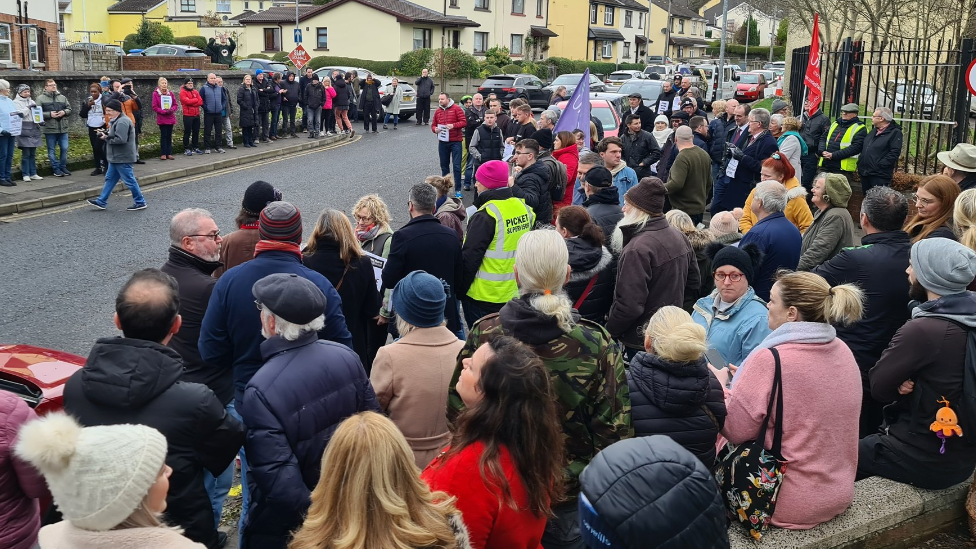BBC Radio Foyle: NUJ set to vote on industrial action
- Published
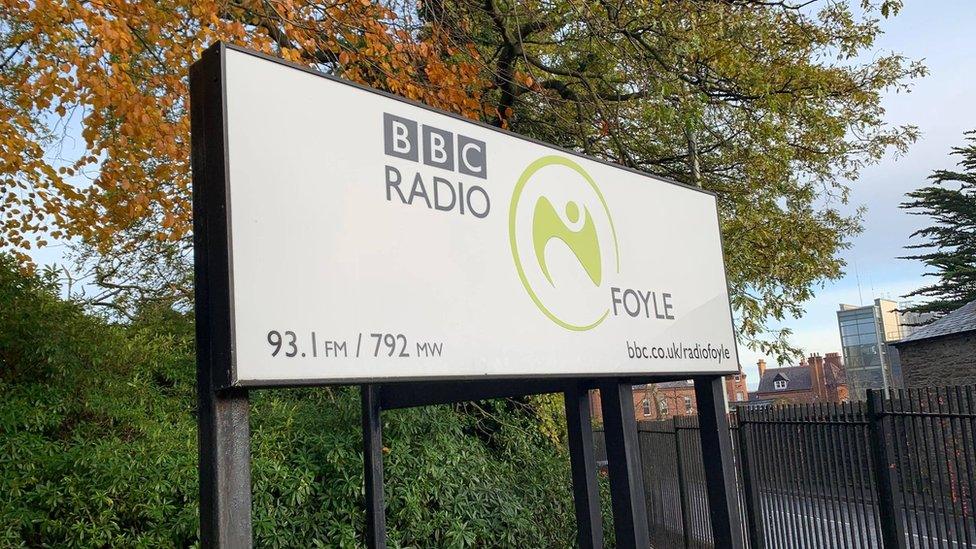
Although Radio Foyle will lose the full lunchtime half-hour programme, it will continue to broadcast hourly radio news bulletins
Members of the National Union of Journalists (NUJ) at BBC Northern Ireland are to be balloted for industrial action over planned changes to BBC Radio Foyle's schedule.
It comes after BBC NI announced a number of Radio Foyle and Radio Ulster schedule and programme changes.
A half-hour breakfast news programme is to replace Radio Foyle's current two-hour show and it will lose its lunchtime half-hour programme.
Hourly news bulletins will continue.
The NUJ said 10 staff remain at risk of redundancy.
The BBC said it expects staffing levels to remain unchanged.
"This includes some new roles to help deliver local and region-wide programming across the BBC's services," the spokesperson added.
NUJ Irish secretary Seamus Dooley said the new schedule is "deeply disappointing and leaves the NUJ with no option but to put this matter into dispute".
"The NUJ had proposed a one-hour breakfast show for a trial period, but management has dug in on the idea of a 30 minute programme," he added.
"Having entered into this process in good faith, we were very disappointed with the hard-line position taken by management."
He said the union has informed BBC management that it "will have to move forward with a ballot for industrial action".
Mr Dooley said there was still time for BBC management to reconsider its plans.
A BBC spokesperson said there has been "lengthy and detailed engagement with the trade unions about our savings and renewal plans".
"Digital news provision from Foyle will be significantly enhanced in addition to radio news programming that will be exclusively focussed on the north west," the spokesperson added.
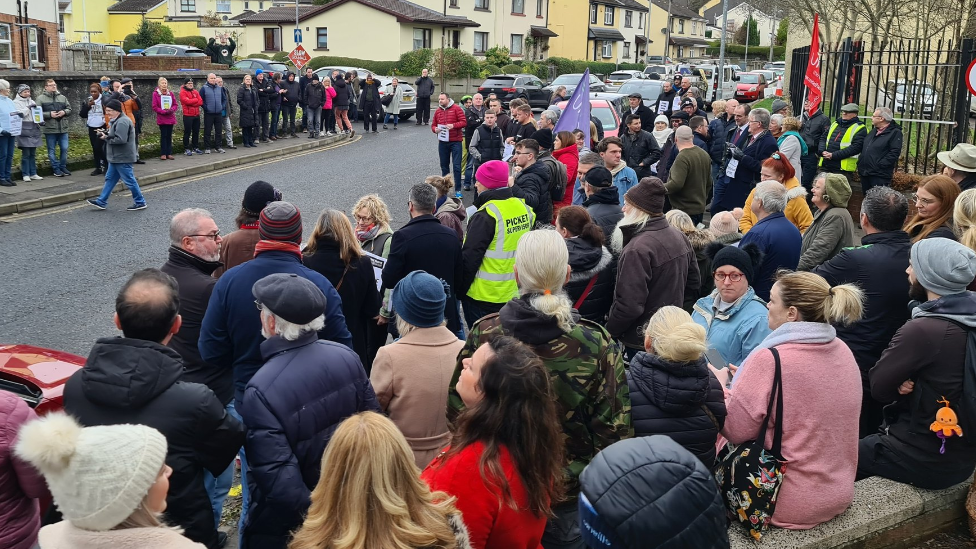
Protestors gathered outside the Radio Foyle station on Northland Road in November
Proposed cuts to jobs and programmes on the station had attracted protests from some politicians and community leaders.
Some assembly members had previously expressed concerns that cuts to programmes on Foyle would turn it into "BBC Greater Belfast".
From 24 April, Radio Ulster's Good Morning Ulster programme will be aired on Radio Foyle until 08:30 on weekdays and then Radio Foyle will have its own dedicated news programme for half an hour.
BBC Northern Ireland said that programme would "have an exclusive focus on stories from and about the north-west".
On Thursday, Social Democratic and Labour Party (SDLP) MP for Foyle, Colum Eastwood, said there would be "significant disappointment across the region at the decisions announced today".
"The loss of three-quarters of the [breakfast] show will be keenly felt by both listeners and the Radio Foyle staff who work so hard to bring people local news," the SDLP leader added.
Uncle Hugo
Other schedule changes in the station include the Mark Patterson show moving to the earlier 12:00 to 13:30 slot.
That means that BBC Radio Ulster's Talkback will not be broadcast on Radio Foyle, but it will be available on BBC Sounds and digital radio.
Hugo Duncan's weekday programme from 13:30 to 15:00 will be broadcast on both Radio Ulster and Radio Foyle but it will be presented and produced from the Foyle studios in Londonderry.
Some of the evening and weekend schedules on Radio Foyle and Radio Ulster will also change from 24 April.
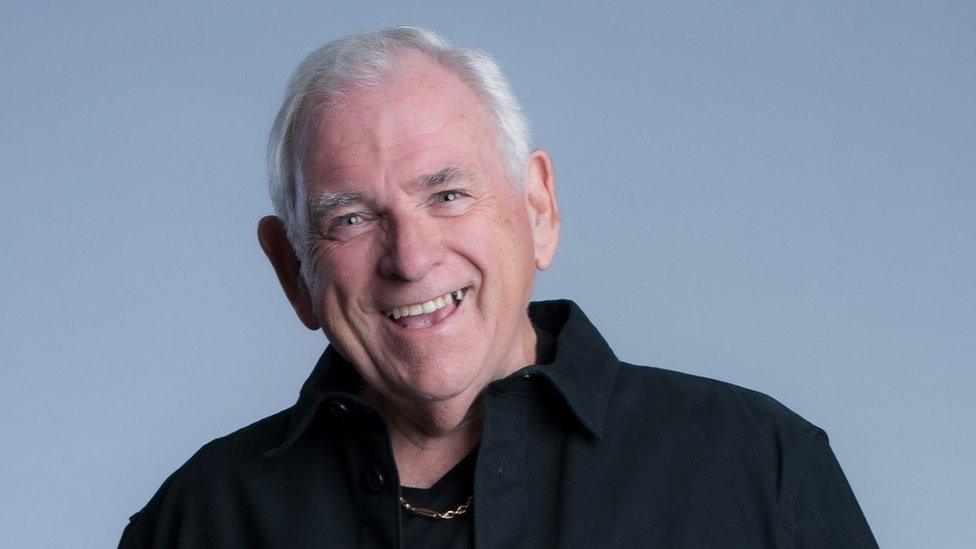
Hugo Duncan's programme will be presented and produced from the Foyle studios in Londonderry
That includes a new 90-minute programme presented by Vinny Hurrell and Cate Conway from 18:00 to 19:30 from Monday to Thursday.
Existing Radio Ulster evening programmes, including those presented by Ralph McLean and Eve Blair, will be broadcast from Radio Foyle's studios.
In a statement, BBC Northern Ireland interim director Adam Smyth said the changes "reflect our commitment to Foyle as a production centre for local and region-wide output".
"News will remain a core part of its work, focussing on stories and issues affecting BBC audiences across the whole of the north west," he added.
Related topics
- Published25 January 2023

- Published29 November 2022
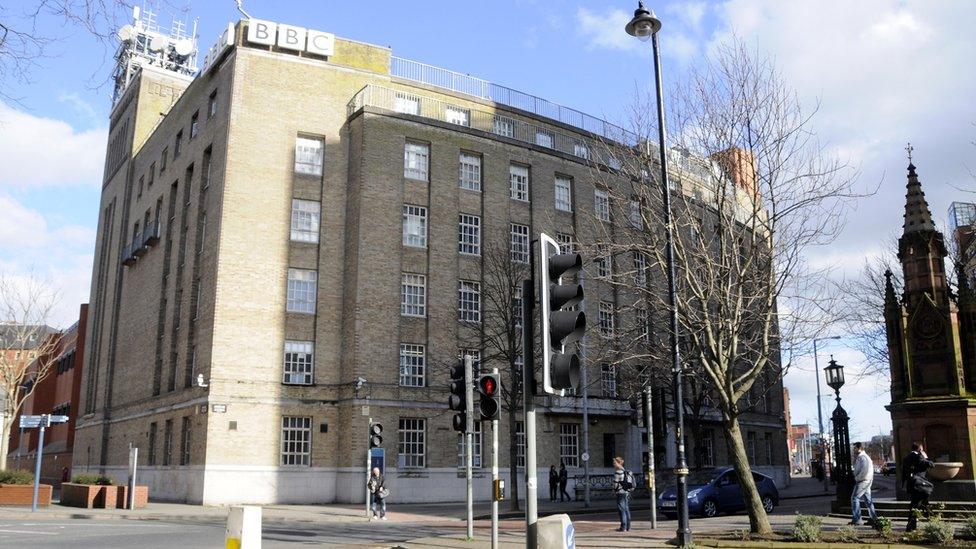
- Published30 November 2022
